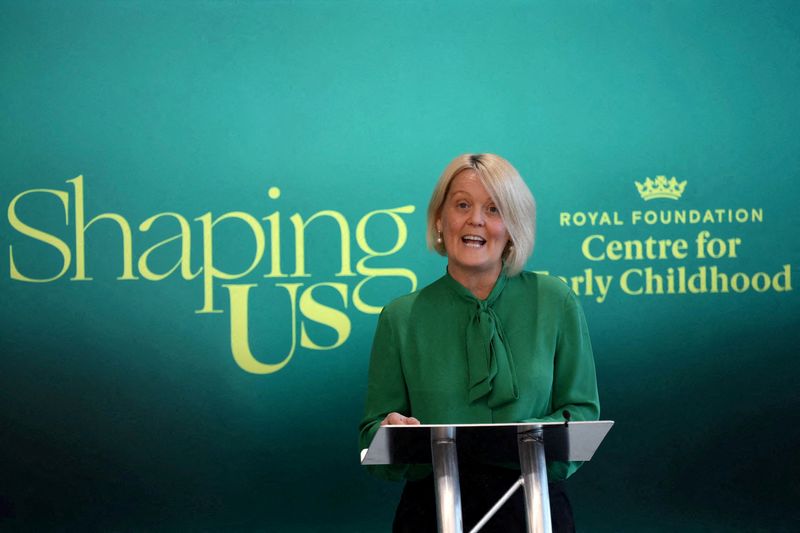
© Reuters. FILE PHOTO: NatWest Chief Executive Officer Alison Rose delivers a speech at NatWest’s headquarters in the City of London on March 21, 2023 Daniel Leal/Pool via REUTERS/File Photo
By Brenna Hughes Neghaiwi and Tom Sims
ZURICH (Reuters) -Alison Rose’s resignation from NatWest (LON:NWG) leaves just one woman in charge of a major western European bank, highlighting an acute gender imbalance that persists across the sector despite pledges to increase female representation.
But while Rose’s departure means Europe’s 25 biggest banks by assets are still 96% male-run, an analysis by Reuters has found that broader executive management teams have become slightly more balanced since last year.
Top management teams at Europe’s largest lenders are now 30.6% female, data compiled by Reuters shows, up from 25.6% for the same group of banks in early 2022.
Since Reuters conducted its study of gender diversity in banking leadership last year, only one other woman has joined the ranks of chief executives – French cooperative bank Credit Mutuel’s Isabelle Ferrand, appointed to the role in May.
New CEO jobs at UBS and SocGen both went to men.
“The loss of one of European banking’s highest profile female leaders in this manner sends a worrying message to women looking for a seat at the top table,” Ann Francke, CEO of the Chartered Management Institute, said of Rose’s exit from NatWest.
“The loser in all of this is the wider economy as the data shows that increasing women’s representation in senior positions across business, politics and public life is a positive thing: diversity of thought and experience leads to innovation – and delivers better business results.”
Across the broader financial services sector, however, a recent study by EY found that hiring of women at board of directors level in Europe had actually dipped.
Companies appointed women to 44% of board openings in the 12 months through June 2023, down from 52% during the previous year. The overall gender split has nevertheless improved to 43% female and 57% male on the boards of European financial firms, EY found, from a 37%/63% split a year ago.
Source: Investing.com





























